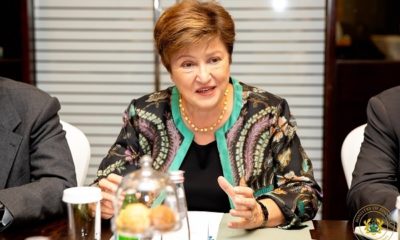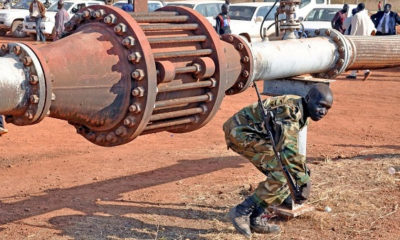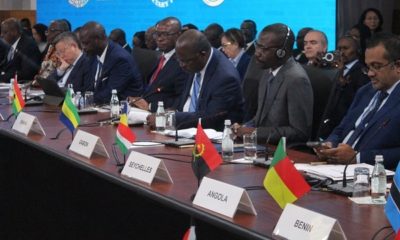News Africa
Tunisia’s Saied rejects $1.9 billion IMF loan with subsidy cuts terms

Tunisia reached a staff-level agreement with the IMF for the loan in September, but it has already missed key commitments and donors believe the state’s finances are increasingly diverging from the figures used to calculate the deal.
Without a loan, Tunisia faces a full-blown balance of payments crisis. Most debt is internal but there are foreign loan repayments due later this year and credit ratings agencies have said Tunisia may default.
When asked whether he would accept the terms of the loan which include cuts to food and energy subsidies and a reduction in the public wage bill Kais Saied told reporters he will not hear ‘diktats’.
Recalling deadly riots that hit the North African country in 1983 after the government raised the price of bread, he added that public peace is not a game.
No agreement alternatives
When asked what the alternative was to the IMF loan, the president replied Tunisians must count on themselves.
The country’s international bonds dropped as much as 4.6 cents following the comments, with many trading at their lowest level in around six months.
Members of Saied’s government have said that there is no alternative to an agreement with the fund.
According to the 2023 budget, Tunisia intends to reduce subsidy expenditure by 26.4 percent to 8.8 billion dinars ($2.89 billion)
The country’s government however has so far not raised fuel prices this year apparently to avoid public anger as inflation reached 10.3 percent, the highest level in four decades.
Talks with IMF stalled
Saied seized most powers in 2021, shutting down parliament, appointing a new government, and moving to rule by decree in moves he said were necessary to end years of chaos and what he saw as rampant corruption among the political elite.
He has blamed Tunisia’s economic problems on corruption and rejected what he sees as foreign interference.
Bailout talks with IMF have been stalled for months, with the US and France among others demanding far-reaching reforms from Saied to free up the cash. But Italy says Europe should quickly support Tunisia to avoid financial collapse.
“Europe risks seeing a huge wave of migrants arriving on its shores from North Africa if Tunisia’s financial stability is not safeguarded,” Italian Prime Minister Giorgia Meloni said last month.
Source: theeastafrican.co.ke
-

 Lifestyle1 month ago
Lifestyle1 month agoRoad Safety Authority narrates how buttocks causes road accident
-

 GENERAL NEWS2 months ago
GENERAL NEWS2 months agoWhy 15 police officers stormed Owusu Bempah’s church – Kumchacha narrates
-

 GENERAL NEWS1 month ago
GENERAL NEWS1 month agoWatch how Ibrahim Mahama rode Honda superbike to pay last respects to late friend
-

 GENERAL NEWS2 months ago
GENERAL NEWS2 months agoHow Offinso residents storm destooled queen mother’s house, demand for new chief
-

 South Africa News2 months ago
South Africa News2 months agoWoman thrown out of a speeding taxi while on her way to work
-

 GENERAL NEWS3 weeks ago
GENERAL NEWS3 weeks agoDeadly clash between youth and navy personnel results in two deaths at Tema Manhean
-

 SHOWBIZ KONKONSAH3 weeks ago
SHOWBIZ KONKONSAH3 weeks agoJunior Pope’s Death: Video of John Dumelo refusing to join canoe for movie shoot over safety concerns resurfaces
-

 News Africa2 months ago
News Africa2 months ago‘Satanically dubious’ – SCOAN releases statement on BBC’s report about TB Joshua, church















